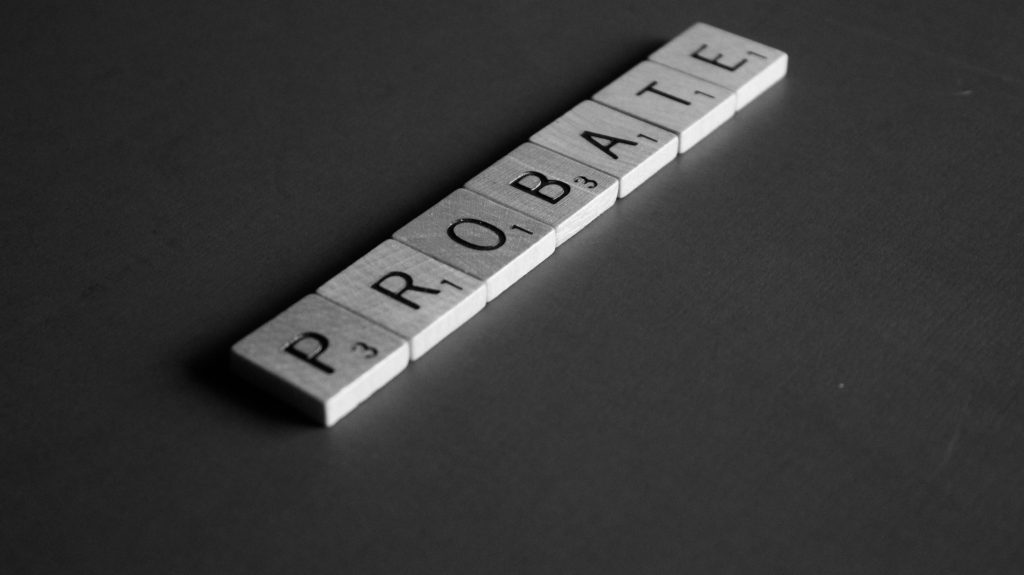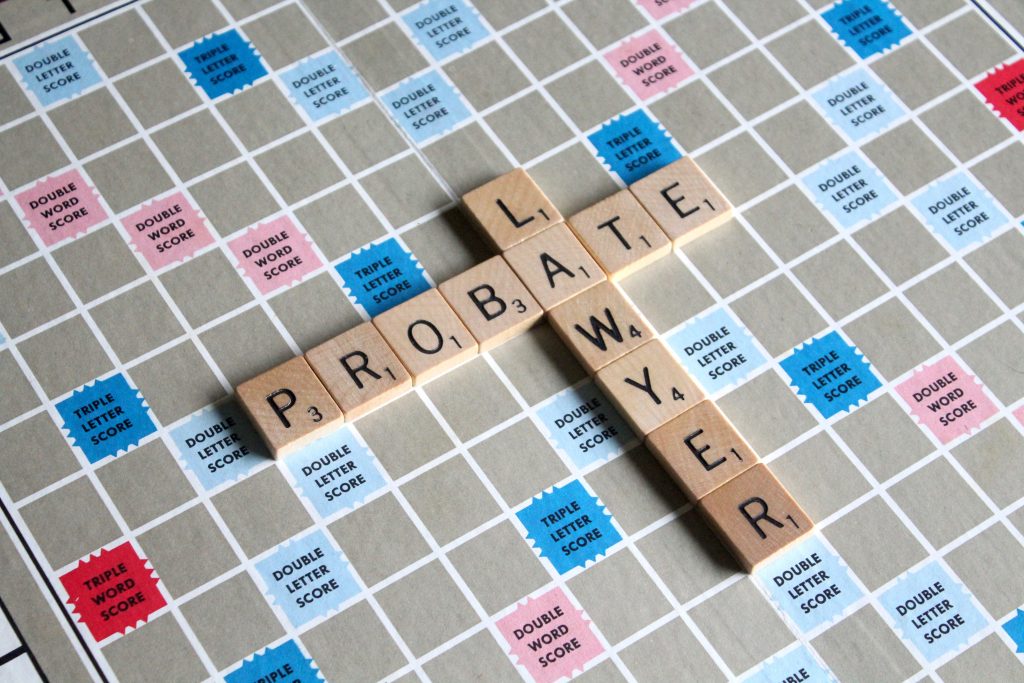Imagine finding yourself in the midst of a heated disagreement regarding the distribution of a loved one’s estate. The emotional strain and uncertainty can be overwhelming. That’s where “Estate Planning For Estate Distribution Disputes” comes in. This invaluable service offers you a comprehensive guide on estate planning, ensuring that your loved one’s wishes are respected and disputes are resolved smoothly. With expert advice and practical tips, this product provides you with the tools you need to navigate complex legal processes. So why wait? Contact the trusted estate planning lawyer listed on the page and take the first step towards peace of mind.
Understanding Estate Planning
Estate planning is the process of organizing and structuring your assets to ensure their efficient distribution after your death. It involves making important decisions regarding the distribution of your property, financial affairs, and even healthcare decisions. By having a well-thought-out estate plan in place, you can have peace of mind knowing that your loved ones will be taken care of and avoid potential disputes that may arise.
Importance of Estate Planning
Estate planning is not just for the wealthy or elderly—it is essential for everyone. It allows you to dictate how your assets will be distributed, who will manage your affairs, and even who will care for your children if anything were to happen to you. Without an estate plan, the state’s laws will determine how your assets are divided among your heirs, which may not align with your wishes.
Furthermore, estate planning provides an opportunity to minimize estate taxes and other costs associated with transferring assets. By employing various strategies and techniques, such as establishing trusts or making lifetime gifts, you can significantly reduce the tax burden on your loved ones.

This image is property of images.unsplash.com.
Common Causes of Estate Distribution Disputes
Despite the importance of estate planning, disputes over the distribution of assets are not uncommon. Several factors can contribute to such disputes, including:
Lack of a Valid Will
If you pass away without a valid will, known as intestacy, the state’s laws will dictate how your assets are distributed. This can lead to disagreements among family members and potentially result in costly legal battles.
Undue Influence
Undue influence occurs when someone exerts pressure or manipulates you into making certain decisions regarding your estate that may not align with your true wishes. This can often happen if you are vulnerable or reliant on someone during the estate planning process.
Mental Incapacity
If there are doubts about your mental capacity at the time of creating your estate plan, it can lead to disputes over the validity of the documents. Family members may contest the estate plan if they believe you were not of sound mind or were unduly influenced when making critical decisions.
Family Conflict
Family dynamics can play a significant role in estate distribution disputes. Sibling rivalries, strained relationships, or complex family structures can all ignite conflicts when it comes to dividing the assets. Disputes may arise over sentimental items, valuations, or ownership of certain assets.
Inheritance Disputes
Inheritance disputes can occur when beneficiaries believe they were unfairly treated or believe they are entitled to a larger share of the estate. These disputes can arise due to misunderstandings, conflicting interpretations of the estate plan, or hidden assets.
Preventing Estate Distribution Disputes
While it is impossible to completely eliminate the potential for estate distribution disputes, taking proactive measures can help minimize the chances. Here are some effective ways to prevent conflicts from arising:
Developing a Comprehensive Estate Plan
A comprehensive estate plan should include a valid will, trusts, powers of attorney, and advanced healthcare directives. By clearly outlining your wishes and intentions in legally binding documents, you can reduce the possibility of disagreements among your loved ones.
Consulting an Experienced Estate Planning Attorney
Working with an experienced estate planning attorney is crucial to ensure your plans are properly executed and legally valid. An attorney can guide you through the complexities of estate planning, help identify potential issues, and provide solutions to avoid disputes.
Updating and Reviewing the Estate Plan Regularly
Life is constantly changing, and so should your estate plan. Major life events, such as the birth of a child, marriage, divorce, or acquiring significant assets, should trigger a review and potential modification of your estate plan. Regularly updating your plan can help prevent conflicts by ensuring it accurately reflects your current wishes and circumstances.
Considering Mediation or Alternative Dispute Resolution
In the event of a dispute, consider exploring mediation or alternative dispute resolution methods, such as arbitration or negotiation. These processes provide a more amicable and efficient way to resolve disagreements, allowing all parties involved to reach a mutually agreeable solution.
Legal Procedures for Resolving Estate Distribution Disputes
Despite taking preventive measures, estate distribution disputes may still arise. In such cases, the following legal procedures can be utilized to resolve conflicts:
Probate Process
If a valid will exists, the probate process is typically followed to administer the estate. This legal process involves validating the will, identifying the assets, paying off debts, and distributing the remaining assets according to the will’s instructions.
Challenging a Will
If there are concerns about the validity of a will, interested parties can challenge it in court. Grounds for challenging a will may include lack of testamentary capacity, undue influence, fraud, or forgery. The court will carefully review the evidence and make a determination.
Contesting Beneficiary Designations
Beneficiary designations on certain accounts, such as life insurance policies, retirement accounts, or payable-on-death accounts, may also be subject to contests. Disputes can arise if there is evidence of improper changes to beneficiary designations or if the named beneficiary is believed to be unfit or undeserving.
Trust Litigation
In cases where a trust is involved, disputes can be resolved through trust litigation. This involves court proceedings to interpret the trust provisions, resolve issues related to trustee misconduct, or address any breach of fiduciary duties.
Role of Executors and Trustees in Estate Distribution Disputes
Executors and trustees play critical roles in the administration and distribution of an estate. Here are some key considerations regarding their responsibilities:
Responsibilities of Executors and Trustees
Executors are responsible for managing the probate process and ensuring the deceased person’s wishes, as outlined in the will, are carried out. Trustees, on the other hand, are responsible for managing trusts and distributing assets to beneficiaries according to the terms of the trust documents. Both roles require careful attention to detail, impartiality, and acting in the best interests of the beneficiaries.
Avoiding Conflicts of Interest
Executors and trustees should always act in a manner that avoids conflicts of interest. This means making fair and unbiased decisions, managing assets diligently, and communicating openly with all beneficiaries to avoid any appearance of favoritism or impropriety.
Seeking Professional Guidance
Given the complexity of estate distribution disputes, executors and trustees should seek professional guidance from estate planning attorneys and financial advisors. These professionals can provide invaluable assistance in navigating legal obligations, addressing conflicts, and ensuring compliance with all relevant laws and regulations.

This image is property of images.unsplash.com.
Mediation and Alternative Dispute Resolution in Estate Distribution Disputes
Mediation and alternative dispute resolution methods offer promising alternatives to lengthy and costly courtroom battles. Consider the following aspects of utilizing mediation:
Benefits of Mediation
Mediation provides a confidential and non-adversarial environment where all parties can openly express their concerns and work towards a mutually agreeable resolution. It allows the individuals involved to maintain control over the outcome, rather than leaving it up to a judge or jury.
Selecting a Qualified Mediator
The selection of a mediator is crucial to the success of the mediation process. Look for a mediator with experience in estate distribution disputes and a thorough understanding of estate planning laws. A qualified mediator can guide the discussions, ensure fairness, and help facilitate productive negotiations.
Preparing for Mediation
Before entering into mediation, it is essential to prepare thoroughly. This includes gathering all relevant documents, understanding the legal issues at hand, and clarifying your interests and objectives. Being prepared will enable you to effectively engage in the mediation process and work towards a resolution.
Negotiating and Reaching a Settlement
During mediation, the parties involved will engage in negotiations to find common ground and reach a settlement. It is essential to approach negotiations with an open mind and a willingness to compromise. With the assistance of the mediator, you can explore creative solutions that address the concerns of all parties involved.
Litigation and Court Proceedings in Estate Distribution Disputes
In some cases, litigation and court proceedings may become necessary to resolve estate distribution disputes. Here are some considerations regarding the legal process:
Initiating Legal Action
To initiate legal action, interested parties must file a complaint or petition in court. This officially starts the litigation process and sets in motion the steps required to resolve the dispute in a judicial setting.
The Discovery Process
During the discovery process, both sides exchange information and evidence relevant to the case. This may involve interrogatories, depositions, and requests for documents to gather evidence and build their respective arguments.
Presenting Evidence
At trial, each party presents their case by offering evidence, including witness testimonies, documents, and expert opinions. The judge or jury then evaluates the evidence and makes a ruling based on the applicable laws and legal precedents.
Appeals and Post-Trial Proceedings
If dissatisfied with the trial court’s decision, parties may have the option to file an appeal. The appellate court reviews the case for errors, legal issues, or other grounds for overturning the decision. Post-trial proceedings may also involve enforcing court orders or resolving any outstanding issues.

This image is property of images.unsplash.com.
The Role of Estate Planning Lawyers in Estate Distribution Disputes
Estate planning lawyers play a crucial role in helping individuals and families navigate estate distribution disputes. Here’s how they can assist:
Guidance on Estate Planning
Estate planning lawyers provide expert guidance on creating, updating, and implementing comprehensive estate plans. They can tailor strategies to minimize potential disputes and ensure your wishes are legally protected.
Legal Representation
In the event of an estate distribution dispute, estate planning lawyers can provide competent legal representation. They will analyze the specific circumstances of the case, identify available legal remedies, and advocate for your rights and interests throughout the legal proceedings.
Assistance in Dispute Resolution
Estate planning lawyers are skilled in alternative dispute resolution methods, such as mediation or negotiation. They can help facilitate communication and guide parties towards a resolution outside of court, thereby reducing conflict and potentially minimizing legal costs.
Expertise in Estate and Probate Laws
Estate planning lawyers possess in-depth knowledge of the intricate laws and regulations surrounding estate planning, probate, and trust administration. This expertise allows them to navigate complex legal matters, anticipate potential issues, and provide effective solutions.
Case Studies: Important Lessons from Estate Distribution Disputes
Studying case studies of past estate distribution disputes can provide valuable insights and lessons. By analyzing these real-world situations, individuals can gain a better understanding of the potential pitfalls and ways to prevent or resolve similar disputes.
Remember, estate planning is a vital process that should not be overlooked. By taking the time to create a comprehensive estate plan and seeking the guidance of experienced professionals, you can protect your assets, minimize potential disputes, and ensure your legacy is preserved according to your wishes.



Leave a Reply